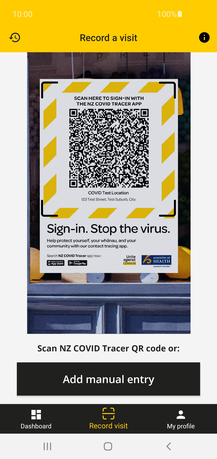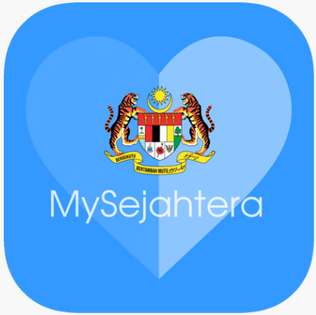
KRL Commuterline, commonly known as Greater Jakarta Commuter rail, Jakarta Commuter rail, and KRL Commuter Line Jabodetabek is a commuter rail system for Greater Jakarta in Indonesia. It was previously known as KRL Jabodetabek. It is operated by KAI Commuter (KCI), a subsidiary of the Indonesian national railway company PT Kereta Api Indonesia (KAI). The rail system uses rolling stock of rapid transit standard and operates high frequency services with minimum headway. In 2019, the average number of Commuterline users per day reached 1.04 million, with the record of the highest number of users served in a day being 1,154,080.

The Jakarta Mass Rapid Transit or Jakarta MRT is a rapid transit system in Jakarta, the largest metropolis of Indonesia.

PT Vidio Dot Com (Vidio) is an Indonesian based over-the-top video streaming service established on 15 October 2014. Originally owned by Mediatama Anugrah Citra, now owned by Surya Citra Media, both are subsidiaries of Emtek. The service's content consists of free-to-air and pay TV channels, live streaming events, films and series, including Vidio original programs. In 2022, Vidio was the largest video on demand service provider in Indonesia, beating Netflix, Disney+ Hotstar, and Amazon Prime Video.

Indonesia operates a single high-speed rail service between country's largest city Jakarta, and third largest city Bandung. It is branded as Whoosh and operated by Kereta Cepat Indonesia China (KCIC).
The COVID-19 pandemic in Indonesia is part of the worldwide pandemic of coronavirus disease 2019 caused by severe acute respiratory syndrome coronavirus 2. It was confirmed to have spread to Indonesia on 2 March 2020, after a dance instructor and her mother tested positive for the virus. Both were infected from a Japanese national.

Aarogya Setu is an Indian COVID-19 "contact tracing, syndromic mapping and self-assessment" digital service, primarily a mobile app, developed by the National Informatics Centre under the Ministry of Electronics and Information Technology (MeitY). The app reached more than 100 million installs in 40 days. On 26 May, amid growing privacy and security concerns, the source code of the app was made public.

Large-scale social restrictions or LSSR was a health and public movement restriction issued by the Indonesian government in response to prevent the COVID-19 pandemic from spreading. The restrictions were implemented by local government with the approval of the Ministry of Health. It includes measures such as closing public places, schools, restricting public transport, and limiting travel from and to the restricted areas. On 7 January 2021, the Ministry of Home Affairs decreed the rename of the measure in Java and Bali into the Community Activities Restrictions Enforcement or CARE.

NZ COVID Tracer is a mobile software application that enables a person to record places they have visited, in order to facilitate tracing who may have been in contact with a person infected with the COVID-19 virus. The app allows users to scan official QR codes at the premises of businesses and other organisations they visit, to create a digital diary. It was launched by New Zealand's Ministry of Health on 20 May 2020, during the ongoing COVID-19 pandemic. It can be downloaded from the App Store and Google Play.
Vaccination requirements for international travel are the aspect of vaccination policy that concerns the movement of people across borders. Countries around the world require travellers departing to other countries, or arriving from other countries, to be vaccinated against certain infectious diseases in order to prevent epidemics. At border checks, these travellers are required to show proof of vaccination against specific diseases; the most widely used vaccination record is the International Certificate of Vaccination or Prophylaxis. Some countries require information about a passenger's vaccination status in a passenger locator form.
2021 (MMXXI) was a common year starting on Friday of the Gregorian calendar, the 2021st year of the Common Era (CE) and Anno Domini (AD) designations, the 21st year of the 3rd millennium and the 21st century, and the 2nd year of the 2020s decade.
Software for COVID-19 pandemic mitigation takes many forms. It includes mobile apps for contact tracing and notifications about infection risks, vaccine passports, software for enabling – or improving the effectiveness of – lockdowns and social distancing, Web software for the creation of related information services, and research and development software. A common issue is that few apps interoperate, reducing their effectiveness.

The COVID-19 vaccination in Indonesia is an ongoing mass immunization in response to the COVID-19 pandemic in Indonesia. On 13 January 2021, the program commenced when President Joko Widodo was vaccinated at the presidential palace. In terms of total doses given, Indonesia ranks third in Asia and fifth in the world.
SafeEntry was a national check-in system which enables the logging of visitors at various locations during the COVID-19 pandemic in Singapore, allowing health authorities to track and isolate confirmed clusters. It was used in tandem with TraceTogether, the national contact tracing platform in Singapore. The system was deactivated on 9 February 2023 after authorities determined there was no longer a need for the system.

MySejahtera is a mobile application developed by Entomo Malaysia and the Government of Malaysia to manage the COVID-19 outbreak in Malaysia. It can be used to conduct contact tracing, self-quarantine, and also book COVID-19 vaccination appointments.

A COVID-19 vaccine card is a record often given to those who have received a COVID-19 vaccine showing information such as the date(s) one has received the shot(s) and the brand of vaccine one has received, sometimes including the lot number. The card also contains information identifying the recipient and the location where the shot was given. Depending on the country, it could serve as an official document verifying one has received vaccination, which could be required by some institutions, such as a school or workplace, when boarding a cruise ship, or when crossing an international border, as proof that one has been vaccinated.

The Community Activities Restrictions Enforcement or CARE was a cordon sanitaire policy of the Indonesian government since early 2021 to deal with the COVID-19 pandemic. Prior to the implementation of CARE, the government had implemented large-scale social restrictions (LSSR) which took place in a number of regions in Indonesia.

A vaccine passport or proof of vaccination is an immunity passport employed as a credential in countries and jurisdictions as part of efforts to control the COVID-19 pandemic via vaccination. A vaccine passport is typically issued by a government or health authority, and usually consists of a digital or printed record. Some credentials may include a scannable QR code, which can also be provisioned via mobile app. It may or may not use a COVID-19 vaccine card as a basis of authentication.
The NZ Pass Verifier is a free mobile app developed by the New Zealand Ministry of Health for businesses and organisations to scan and verify their customers' My Vaccine Pass certificates. The app was launched on 23 November 2021 for use on smartphones.

Pricilia Carla Saputri Yules, better known as Carla Yules, is an Indonesian beauty pageant titleholder who won the title of Miss Indonesia 2020 representing South Sulawesi.

Achmad Yurianto was an Indonesian military doctor and bureaucrat who was appointed the spokesperson to the COVID-19 Response Acceleration Task Force during the early days of the COVID-19 pandemic in Indonesia. He was also the Director General for Disease Prevention and Control during this time.














